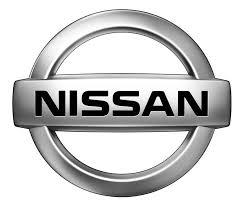Pathfinder 2WD V6-3.5L (VQ35) (2003)
/Page-420002.png)
11. Attach a compression tester to No. 1 cylinder.
12. Crank engine and record highest gauge indication.
13. Repeat the measurement on each cylinder as shown above. Always use a fully-charged battery to obtain specified engine speed.
14. If compression in one or more cylinders is low:
a. Pour a small amount of engine oil into cylinders through spark plug holes.
b. Retest compression.
^
If adding oil helps compression, piston rings may be worn or damaged. If so, replace piston rings after checking piston.
^
If pressure stays low, a valve may be sticking or seating improperly. Inspect and repair valve and valve seat. If valve or valve seat is
damaged excessively, replace them.
^
If compression stays low in two cylinders that are next to each other:
a. The cylinder head gasket may be leaking, or
b. Both cylinders may have valve component damage. Inspect and repair as necessary.
15. Install parts in reverse order of removal.
16. Perform "Self-diagnosis Procedure" if any DTC appears. See: Powertrain Management/Computers and Control Systems/Testing and
Inspection/Reading and Clearing Diagnostic Trouble Codes/Clearing Diagnostic Trouble Codes
